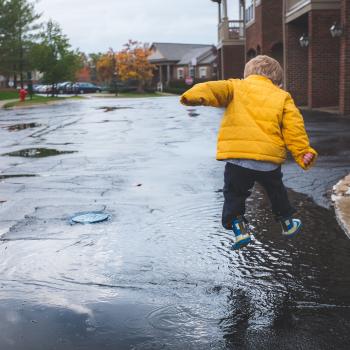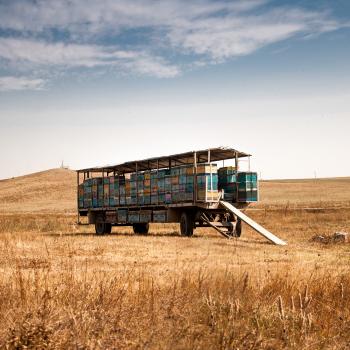 There’s something in a Sunday that makes a body feel alone.
There’s something in a Sunday that makes a body feel alone.
I sat in my office the other day listening to Kris Kristofferson’s country standard. It wasn’t even a Sunday, as would presumably be the case. It was a Saturday, and I had to be there for an event that took up all of the good hours. But a touch of melancholy about the afternoon—pale, lazy, mute—gave me a hankering to hear him. His version of the song is the best, though his voice is not that of Johnny Cash or Willie Nelson.
Still, Kris penned it, and he lived it, and what he meant comes through strongest when he sings it. You know what he’s saying when he speaks of the day’s innocence—witnessing the pleasures of those who have a place—playing, worshipping, cooking, belonging to each other when all the while he stands outside their inside—indeed, stands perpetually outside any inside.
There’s nothing short of dyin’
Half as lonesome as the sound
On the sleepin’ city sidewalks
Sunday morning coming down
I’ve wondered why Sunday is like this for me. Despite its holiness, it can often—not always, but very, very often—bring me down. It seems Sunday carries its own penance; I yoke the Sabbath weight across the span of my shoulders in a way that I never do with other days. Moreover, harder than Sunday mornings can be Sundays at first dark, as night falls and day leaves, each tugging at the corners of the purple sky—a time as sigh-ridden as any counted by a clock.
When I was a child, it could have been because the weekend of play had ended and the weekdays of school were to begin that Sunday made me blue. But it seems too easy to say that the same reason—rest and joy on the wane, labor and endeavor on the wax—is why a grown man, one who actually enjoys the work he does, should feel this way.
Maybe for those with a wandering soul, who’ve lived in too many places for their own good, Sunday is the day in which a lack of permanence can sting the sharpest. One of the most poignant parts to the song is the acknowledgement that it was not always thus. The sights and sounds and smells of the day are remembrances, as the line goes, of “something lost somehow somewhere along the way.”
In the song, he can’t even name it, that “something”—nor say how or where it was lost; but the meaning is clear: that in the long years of travel, whatever it was he possessed had somehow fallen away—the gloves and scarves of a lifetime that slip from a body and are missed only afterwards, and not so much in a manner that allows them to be remembered by name, but more by a feeling that their absence makes known—the cold hands and frozen face, the nakedness that once was covered.
The power of the line is that of nostalgia, its sweet painfulness—something I frenetically resist at every turn, fleeing with gas pedal to the floor and rearview mirror ripped from the windshield. I flee it due to the very fact of its potency, bringing as it does an irresolvable ache to any life lived long enough to lose things.
I think it can probably kill you, nostalgia, though concede that it’s something impossible not to indulge to some extent. But waltzing with it is like straying too high into the clouds, too deep within the waters. Something changes in the blood when we dabble long in the realm of past spirits, beautiful sirens though they are.
Too, it seems that Sunday, for all its feast-day nature, not only has an incriminating quality to it—despite the Mass? because of the Mass?—but also one of frank stock-taking.
The prosaic lies and quotidian farces that get us through the week are powerless against faults that present themselves, bold and stark, in all their Sunday worst. Avoiding them in the usual way feels tiresome, like an hours-long board game a child comes to find joyless and taxing, its artifice all at once too transparent for further play.
Inadequacies become clear, particularly on Sunday morning; failures rise up and flesh out; you know you’re not the man you meant to be—worse, the man you meant to be is not even the man you should have wanted to be. It’s the time when the strongest of aspirations can seem cheap, tawdry, dishonorable. Maybe this is all the same thing—the penance and the scrutiny. Maybe because the day demands candor, it feels like sufferance.
All I know is that Sunday morning reminds me of exile, or that I am in exile.
It comes down hard and fogs my peace. It says my comforts are made of paper and that my plans are shaped in mazes. It says there’s a lack that I have neither the mind nor the memory to name, but that is yet both balm and pillow for my discontent. It says that I’m a sidewalking stranger, in a city shut with sleep, looking for a way back.
And on the seventh day, this man became restless—not to leave, not to move, but to return.











